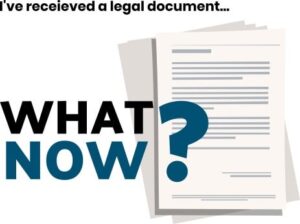In Australia, there are strict laws and regulations that apply both to purchasers and sellers of goods and services. Whether you purchase goods or services online, in-store or over the phone, there are extensive laws and regulations in place to protect you. However, as a consumer, you also have certain obligations that you need to be aware of. This is particularly relevant in situations where you receive goods or services that you have not requested.
Laws and regulations relating to the rights and obligations of consumers and suppliers of goods and services in Australia are covered under the Australian Consumer Law (the “ACL”). Under section 40 of the ACL it is illegal to request payment for goods or services that the customer has not agreed to buy.
Sections 39 to 43 of the ACL, cover the following matters relating to the rights and liabilities of suppliers and in situations concerning unsolicited supply:
- Unsolicited supply of goods;
- Unsolicited supply of services;
- Unsolicited consumer agreements; and
- Unsolicited credit or debit cards.
What is an unsolicited supply of goods?
Under section 2 of the ACL, ‘consumer goods’ are defined as goods (things) that are intended to be used, or are of a kind likely to be used, for personal, domestic or household use or consumption. This can include small everyday household items like a television or microwave, or even larger and more expensive items such as cars, boats, or caravans. An unsolicited supply of goods refers to a situation where you have received goods that you have not ordered or requested. If you have received unsolicited goods, you do not have to pay for those goods, nor for any loss or damage arising from the supply of the goods.
Under section 41 of the ACL, an ‘unsolicited supply of goods’ has five elements:
- If a person, in trade or commerce, supplies unsolicited goods to another person, the other person:
- is not liable to make any payment for the goods; and
- is not liable for loss of or damage to the goods, other than loss or damage resulting from the other person doing a wilful and unlawful act in relation to the goods during the recovery period.
- If a person sends, in trade or commerce, unsolicited goods to another person:
- neither the sender nor any person claiming under the sender is entitled, after the end of the recovery period, to take action for the recovery of the goods from the other person; and
- at the end of the recovery period, the goods become, by force of this section, the property of the other person freed and discharged from all liens (a right to keep possession of property belonging to another person until debt owed by that person is discharged) and charges of any description.
- However, subsection (2) does not apply to or in relation to unsolicited goods sent to a person if
- the person has, at any time during the recovery period, unreasonably refused to permit the sender or the owner of the goods to take possession of the goods; or
- the sender or the owner of the goods has (within the recovery period) taken possession of the goods; or
- should the indentation take more than:
- The recovery period is whichever of the following periods ends first:
- the period of 3 months starting on the day after the day on which the person received the goods;
- if the person who receives the unsolicited goods gives notice with respect to the goods to the supplier or sender in accordance with subsection (5) the period of one month starting on the day after the day on which the notice is given.
- A notice under subsection (4)(b):
- must be in writing; and
- must state the name and address of the person who received the goods; and
- must state the address at which possession may be taken of the goods, if it is not the address of the person; and
- must contain a statement to the effect that the goods are unsolicited goods.
To recap, someone who receives unsolicited goods does not have to:
- Pay for those goods; or
- For any loss or damage arising from the supply of the goods.
However, the consumer may have to pay compensation if they wilfully damage unsolicited goods within a three-month period of receiving them. This three-month period is called the recovery period.
The recovery period
If a business has provided unsolicited goods or services to a consumer, they may recover the unsolicited goods or services for a period of three months from the day the goods or services were received.
This three-month recovery period will be reduced to one month if the recipient of the unsolicited goods or services provides written notice to the supplier that:
- They do not want the goods or services; and
- The supplier may recover/collect the goods or services.
The recipient can keep unsolicited goods or services that the supplier has elected not to collect within the stipulated recovery period, without any obligation to pay for the goods or services after that point. The supplier will also not be able to recover the uncollected goods or services after the recovery period has lapsed.
However, there are some exceptions to this rule.
The recipient of unsolicited goods will not be able to:
- Keep goods which were clearly not intended for them (e.g., goods contained in a package clearly addressed to another person); or
- Unreasonably refuse to allow the supplier to collect the goods during the recovery period.
Issuing an invoice for the supply of unsolicited goods or services
A person or business must not issue an invoice remanding payment for the supply of unsolicited goods or services unless:
- They reasonably believe they have a right to be paid; or
- The invoice contains the following warning required under the ACL: ‘This is not a bill. You are not required to pay any money’. This warning must be the most prominent text on the document.
The case of Australian Competition and Consumer Commission v Artorios Ink Co Pty Ltd (No 2) (2013)[6] is an example of the requirement under the ACL for a business or individual demanding payment to prove that they have a legitimate right to the recover the payment:
Artorios Ink Co Pty Ltd (Artorios Ink) and its sole director were ordered to pay penalties of $50,000 each for several contraventions of the ACL, including asserting a right to payment for unsolicited goods. Artorios Ink sent demands for payments for supply of ink cartridges, for which the recipients never agreed to purchase. A further breach was the misrepresentation by Artorios Ink to the recipient’s employees that there was an existing supply relationship between the parties when no such relationship existed.
What is an unsolicited supply of services?
Under the ACL, ‘services’ are defined to include any rights, benefits, privileges or facilities that are, or are to be, provided, granted or conferred in trade or commerce. An ‘unsolicited supply of services’ refers to situations where someone receives a service that they have not requested, or a business claims to have supplied services that the proclaimed recipient did not receive or authorise.
A person who receives unsolicited services does not have to pay for those services, or for any loss or damage arising from the supply of the service.
Under section 40 of the ACL, an ‘unsolicited supply of goods or services’ has the following elements applying to the supply of services:
- A person must not, in trade or commerce, assert a right to payment from another person for unsolicited services unless the person has reasonable cause to believe that there is a right to the payment;
- A person must not, in trade or commerce, send to another person an invoice or other document that:
- states the amount of a payment, or sets out the charge, for unsolicited goods or unsolicited services; and
- does not contain a warning statement that complies with the requirements set out in the regulations; unless the person has reasonable cause to believe that there is a right to the payment or charge;
- In a proceeding against a person in relation to a contravention of this section, the person bears the onus of proving that the person had reasonable cause to believe that there was a right to the payment or charge.
Under section 42 of the ACL, an ‘unsolicited supply of services’ imposes the following liabilities on the recipient:
If a person, in trade or commerce, supplies or purports to supply, but does not supply, unsolicited services to another person, the other person:
- is not liable to make any payment for the services; and
- is not liable for loss of or damage as a result of the supply, or purported supply, or the services.
Example of an unsolicited supply of services
Sarah goes to a car mechanic for an oil change and break replacement on her car and is quoted $700. While getting the car serviced, the mechanic conducts a wheel-alignment, which she did not ask for. Sarah is later charged $1,200 for the service, $700 for the oil change and break replacement, plus an extra $500 for the wheel alignment. Sarah is not legally required to pay the additional $500 as she did not request, or authorise, these additional services to be supplied.
Example of a solicited (the opposite of an unsolicited supply) supply of services
Mark goes to car mechanic for an oil change and break replacement on his car and is quoted $700. While getting the car serviced, the mechanic calls Mark and asks whether he would like a wheel-alignment as an additional service. Mark agrees. He is later charged $1,200 for the service – $700 for the oil change and break replacement, plus an extra $500 for wheel-alignment. Mark is legally required to pay the additional $500.
What is an unsolicited consumer agreement?
An ‘unsolicited consumer agreement’ is when a supplier and or salespersons approaches or telephones you without you inviting them to do so, and negotiations take place over the phone or in person at a location other than at the supplier’s premises.
Under section 69(1) of the ACL, the meaning of an ‘unsolicited consumer agreement’ has four elements:
- The agreement must be before the supply, in trade or commerce, of goods or services to a consumer;
- The agreement must have resulted from negotiations between a dealer and the consumer either in person (at a place other than the supplier’s place of business) or by telephone;
- The consumer must not have invited the dealer to approach or telephone them for the purpose of entering negotiations to supply goods or services. An invitation to quote a price for a good or service is not taken to be an invitation to enter such negotiations. Providing contact details by entering competitions or contacting a supplier in response to a missed call or other attempts by a supplier to contact a consumer is not taken to be an invitation to enter such negotiations; and
- The total price paid or to be paid is over $100 or cannot be determined at the time the agreement is made.
Section 79 of the ACL stipulates the requirements for all unsolicited consumer agreements as follows:
The supplier under an unsolicited consumer agreement must ensure that the agreement, or (if the agreement was negotiated by telephone) the agreement document, complies with the following requirements:
- it must set out in full all the terms of the agreement, including:
- the total consideration to be paid or provided by the consumer under the agreement or, if the total consideration is not ascertainable at the time the agreement is made, the way in which it is to be calculated; and
- any postal or delivery charges to be paid by the consumer;
- its front page must include a notice that:
- conspicuously and prominently informs the consumer of the consumer’s right to terminate the agreement; and
- conspicuously and prominently sets out any other information prescribed by the regulations
- it must be accompanied by a notice that:
- may be used by the consumer to terminate the agreement; and
- complies with any requirements prescribed by the regulations.
- it must conspicuously and prominently set out in full:
- the supplier’s name; and
- if the supplier has an ABN — the supplier’s ABN; and
- if the supplier does not have an ABN but has an ACN — the supplier’s ACN; and
- if the supplier’s business address (not being a post box) or, if the supplier does not have a business address, the supplier’s residential address; and
- if the supplier has an email address – the supplier’s email address; and
- if the supplier has a fax number – the supplier’s fax number;
- it must be printed clearly or typewritten (apart from any amendments to the printed or typewritten form, which may be handwritten); and
- it must be transparent (i.e. obvious or clear);
The ACL sets out disclosure obligations when making an unsolicited agreement. These obligations stipulate that the business must:
- Provide a copy of the agreement to the consumer after it is signed, if the agreement is made in person;
- Provide a document evidencing the agreement to the consumer within five business days after the agreement is made; and
- Deliver the document by person, post or with the consumer’s consent, by email.
Example of unsolicited supply
A door-to-door salesperson travels between suburbs selling alarm systems. The salesperson sells several alarm systems but does not provide their customers with a copy of the agreement. Days after entering into an agreement with the salesperson, one of the customers wishes to cancel the agreement but is told that it is not possible to do so.
The above example would be a breach of the ACL, as customers must receive a copy of the agreement and are entitled to a 10-day cooling off period in which they can cancel the agreement for any reasons whatsoever, including if the customer has had a change of mind.
The example scenario above is taken from the case of Australian Competition and Consumer Commission v Neighbourhood Energy Pty Ltd (2012).[7] In this case, the Federal Court ordered the two companies to pay a total of $1.55 million for illegal door-to-door selling practices and failure to leave the homes of consumers when requested.
What is an unsolicited supply of credit or debit cards?
An ‘unsolicited supply of credit or debit cards’ is when you receive a credit or debit card you have not requested or a business claims to have a credit or debit card supplied that you did not receive or authorise.
Disclosure obligations, as set out by the ACL, state that when sending out an unsolicited credit or debit card, the business must not send you a debit or credit card unless:
- The consumer has requested the card in writing; or
- The card is a replacement, renewal or substitution for a card previously issued as requested by the card holder.
An item is a ‘credit card’ if it is intended to be used to obtain cash, products or services (e.g. store-branded credit cards and store account cards).
An item is a ‘debit card’ if it is intended to be used to access an account held by the consumer for the purposes of depositing or withdrawing cash or obtaining products or services.
Under section 39 of the ACL, an ‘unsolicited supply of credit or debit card’ has the following element:
- A person must not send a credit card or a debit card, or an article that may be used as a credit card and a debit card, to another person except:
- pursuant to a written request by the person who will be under a liability to the person who issued the card or article in respect of the use of the card or article; or
- in renewal or replacement of, or in substitution for:
- a card or article of the same kind, previously sent to the other person, pursuant to a written request by the person who was under a liability, to the person who issued the card previously so sent, in respect of the use of that card; or
- a card or article of the same kind previously sent to the other person and used for a purpose for which it was intended to be used.
References
- Competition and Consumer Act 2010 (Cth) Schedule 2.
- Ibid s 41.
- Ibid s 42.
- Ibid 73 – 95.
- Ibid s 39.
- FCA 1291.
- FCA 1357.





